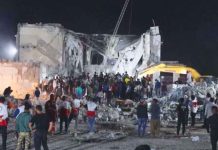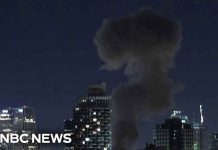
A new deployment strategy challenges state sovereignty, raising significant legal and constitutional questions.
Story Highlights
- The Pentagon deploys troops in Democratic-led cities without state consent, sparking legal debates.
- Federal court ruled Los Angeles deployment violated the Posse Comitatus Act.
- Trump’s administration frames domestic issues as a national security concern.
- Public opposition grows as cities witness increased federal presence.
Trump Administration Deploys Federal Forces Domestically
In 2025, President Donald Trump’s administration has expanded the deployment of federal forces to major U.S. cities, including Los Angeles, Memphis, and Washington, D.C. These deployments are part of a broader strategy to address crime, protests, and illegal immigration. However, deploying these forces without state consent has raised significant legal and constitutional questions, particularly concerning the Posse Comitatus Act, which restricts military involvement in domestic law enforcement.
Despite legal challenges, including a federal court ruling deeming the Los Angeles deployment illegal, the Trump administration continues to justify these actions as necessary for public safety. The strategy frames domestic unrest as a form of invasion, positioning the Pentagon’s new National Defense Strategy to prioritize domestic missions over traditional foreign threats. This shift has sparked a broader debate about the role of military forces in American cities.
Legal and Constitutional Challenges
The legal implications of these deployments are profound. The Posse Comitatus Act, a federal law dating back to 1878, limits the use of military forces in domestic law enforcement activities. Historically, such deployments have only occurred in extreme circumstances, often with state consent or under the Insurrection Act. The current situation, where federal forces are deployed without state approval, stretches the legal boundaries and raises concerns about executive overreach.
Critics argue that these actions erode civil liberties and set a dangerous precedent for future administrations to use military force for political objectives. The federal court ruling against the Los Angeles deployment underscores the legal challenges facing the administration. However, President Trump’s team, including Secretary of Defense Pete Hegseth, argues that these measures are necessary to restore order and protect public safety.
Public and Political Reactions
The public response to these deployments has been mixed, with significant opposition in targeted cities. Polls indicate that a majority of residents in cities like Washington, D.C., oppose the increased federal presence. Critics, including civil rights organizations and local governments, argue that these deployments are politically motivated, targeting Democratic-led cities with lower crime rates than their Republican counterparts.
The Trump administration maintains that these actions are essential for maintaining law and order, framing them as training grounds for potential future unrest. However, the increased military presence has heightened tensions between federal and local authorities, leading to public protests and civil unrest in response to what many see as an overreach of federal power.
Sources:
2025 deployment of federal forces in the United States


